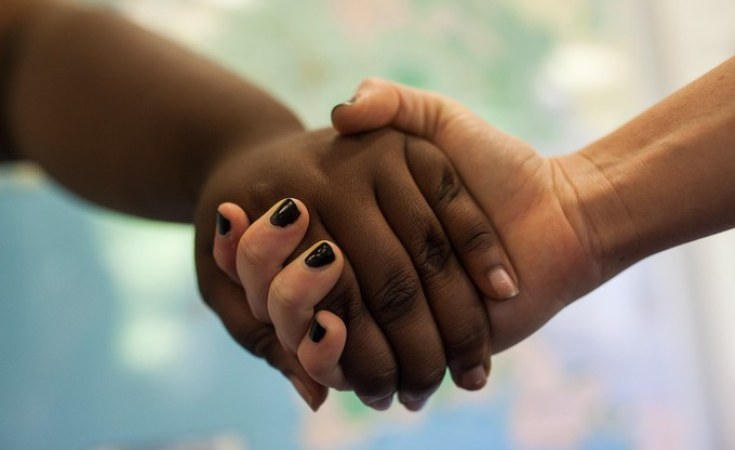Media headlines are full of bad news about LGBTQ+ people across the African continent these days. They are insulted by public officials, attacked and killed by police and vigilantes, and denied access to justice and dignity. Often, these negative words and actions are justified as being part and parcel of "African values."
However, the concept of pan-Africanism should, in fact, embrace African people in all their diversity--even love them.
As a political philosophy and project rooted in the belief in the unity, common history, and shared purpose of the peoples of Africa, pan-Africanism stands for self-determination and total liberation. It is also a commitment to bring African people within and beyond the continent into a deeper connection. The level of connection required to achieve these goals is only possible with love and solidarity. Acknowledging the existence of queer and transgender Africans, and their rights for fair treatment and safety, are actually essential for African liberation.
Anti-LGBTQ+ policies and actions are on the rise in the continent. Uganda and Ghana have toughened their laws to persecute not only LGBTQ+ people but anyone advocating for their human rights. There is concern that Kenya, Senegal, Burkina Faso, Mali, and others could also toughen their laws. What is common across these radical changes is the assertion by public figures that homosexuality or anything outside of the gender binary is "un-African."
In the name of preserving "African values," some African policymakers and leaders are legitimizing violence and abuses against sexual and gender minorities. In the name of safeguarding African values, African leaders are building a cultural heritage of hatred, exclusion, and hostility against fellow Africans. In the name of maintaining African Values, children are being kicked out of their families and communities; women are raped because of their perceived sexual orientation; security forces arrest and torture LGBT people in detention; people are being brutally murdered with impunity simply because they love differently; voices are being silenced by shutting down civil society organizations.
But this is not a way to preserve African values--quite the opposite.
Love is a pan-African issue. Some politicians and other influential people are projecting a warped version of pan-Africanism when they claim that being LGBTQ+ is "un-African." These claims fuel fear and violence, inspiring legal changes that amount to state-sanctioned homophobia and transphobia. But when influential figures claim that being queer is "un-African," they are denying historical and anthropological evidence of sexual diversity and practices in African societies.
In fact, people who claim to be representing pan-Africanism, a movement born as a rejection of Western imperialism, reflect an inherited view of queerness from colonial legacies, with anti-LGBTQ+ policies rooted in the European imperial project. In fact, many of the contemporary representations of gender and sexuality have been introduced to the continent by colonialists. It is this Eurocentric vision that is now reproduced by people claiming pan-Africanist values with their slurs and attacks on queer and trans Africans.
There are Africans who love people of the same sex. They all fear for their lives in a continent where they entirely belong. Their existence is valid, just like any other human being. Love is a pan-African issue. The idea of a "homophobic continent" can and should be challenged by reimagining pan-Africanism from the perspective of love for future generations.
African queer people or queer people who are Black or of African descent are no less deserving of liberation from persecution and of self-determination. In that regard, they need equal protection under the law, not new or specific rights. Instead of teaching a stereotype-driven image of Africa as unable to acknowledge gender and sexual diversity, pan-Africanist proponents and institutions should affirm diverse identities and speak up when African LGBTQ+ people are denied their fundamental human rights to freedom of expression, privacy, and safety.
This essay is part of a series marking the 20th anniversary of the LGBT rights program at Human Rights Watch. The collection of articles explores the multifaceted challenges LGBT people face globally. Find them here.
Larissa Kojoué, Researcher


